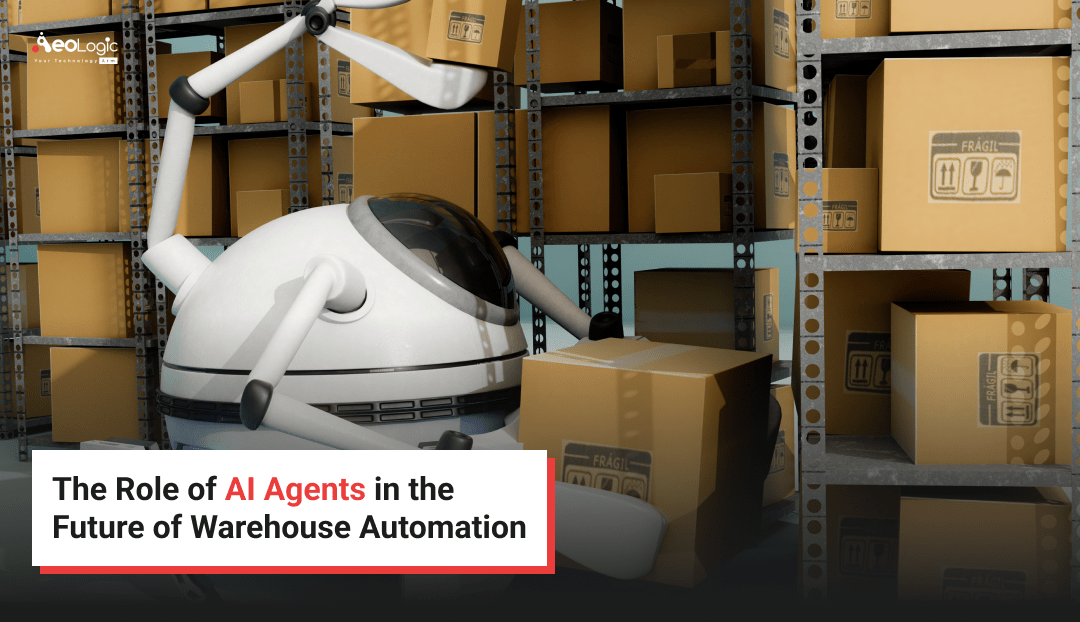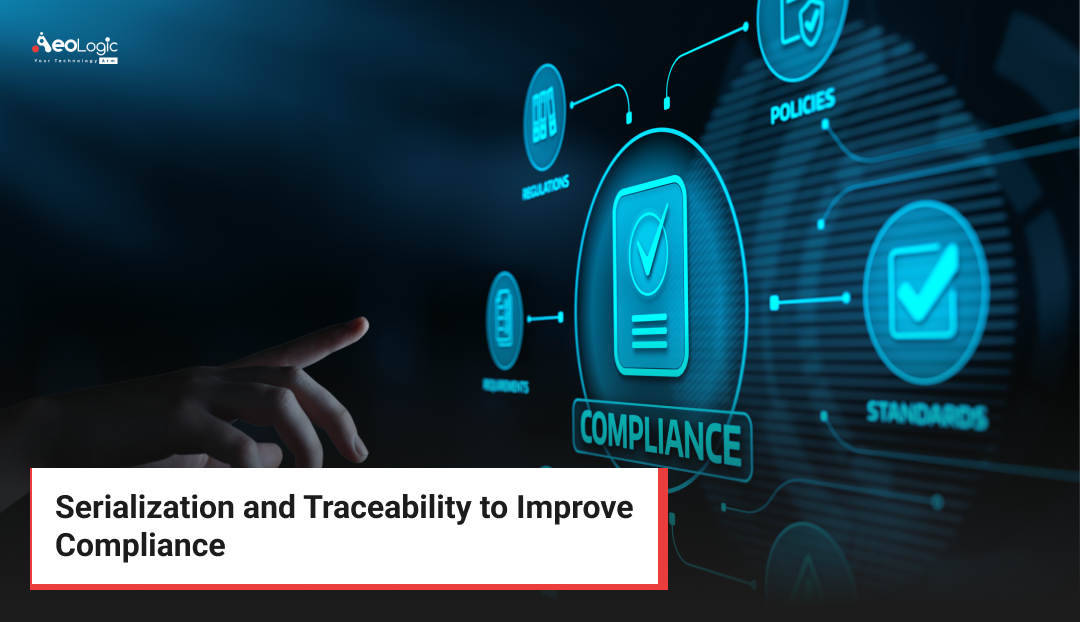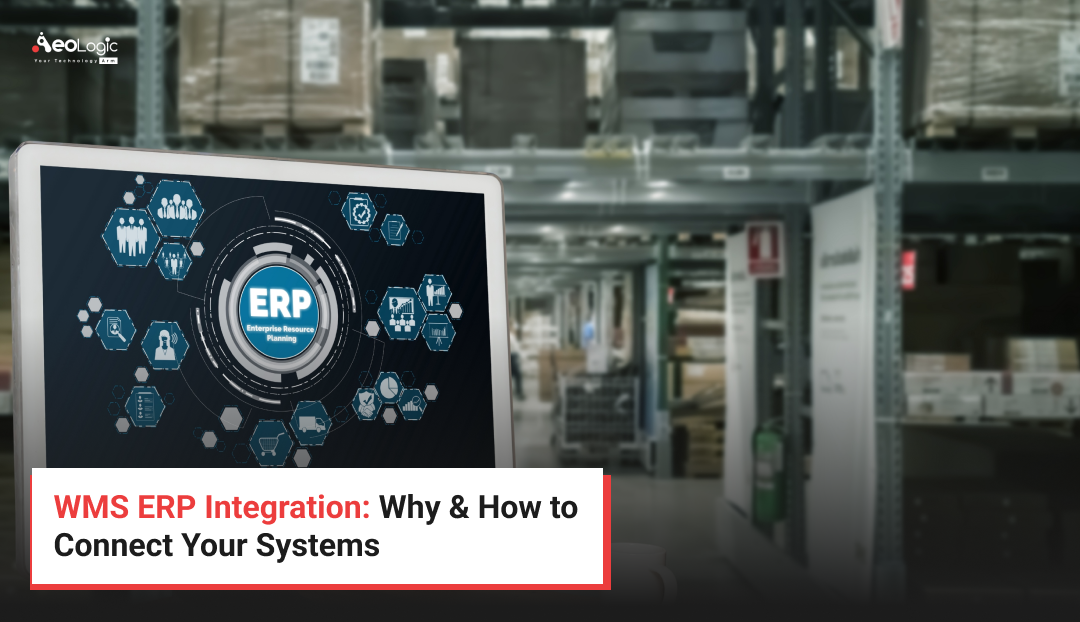Warehouse automation is a trending aspect in every industry, keeping businesses up to date with the advanced and digital transformation revolution. To make warehouse automation more efficient, the AI agents’ solutions provide a crucial factor.
Since the traditional approach is unable to make warehouse automation capable of managing today’s demands. The traditional approach enables various difficulties, like not being achievable for the fully autonomous system, bad productivity due to not having automated ways to increase accuracy, and not being able to focus on more complex tasks. These problems can easily be eliminated with the AI agents in warehouse automation.
AI solutions are enhancing the future of warehouse automation with increasing productivity, efficiency, and better accuracy in comparison to traditional methods. AI agents in warehouse automation offer various benefits and use cases like lower down unnecessary expenses, more automation applications, better efficiency with better development, boosting productivity, creating a smart environment to make everything more advanced for today’s digital transformation and all are boost warehouse automation to the next level.
Overall, the AI agents’ solutions are going to completely enhance the future and offer greater efficiency, revenue, advancements, and a more efficient way to move towards success and digitalization for warehouse automation. As the technology develops or advances, the AI agents solutions roles in warehouse automation become more crucial than ever before.
Related Statistics
The warehouse automation market has experienced significant growth in recent years. It had grown from $21.42 billion in 2024 to $24.09 billion in 2025 at a compound annual growth rate (CAGR) of 12.4%. The growth in the historic period can be attributed to e-commerce growth, labor shortages, and costs, global supply chain complexity, consumer expectations for faster delivery, and inventory management efficiency.
The AI agents market size has grown exponentially in recent years. It will grow from $5.68 billion in 2024 to $8.34 billion in 2025 at a compound annual growth rate (CAGR) of 47.0%. It will grow to $38.52 billion in 2029 at a compound annual growth rate (CAGR) of 61.4%.
A large percentage of warehouses are adopting AI solutions. For example, 70% of large-scale warehouses will have adopted AI-driven solutions by 2024. Agentic AI solutions can automate 60-70% of the time employees spend on tasks, according to McKinsey.
Also Read: How AI Agents Are Improving EHR/EMR Systems in Healthcare
The Role of AI Agents in Warehouse Automation
The software or solutions that execute warehouse operations to enable automation of many areas are known as AI agent solutions. In order to improve warehouse management’s efficiency, productivity, accuracy, and many other aspects, AI agents are typically created using AI algorithms.
Better demand forecasting, learning from conditions and making adjustments dynamically, deployment of automated robots to carry out tasks, defect detection and quality inspection, predictive analytics, and resource optimization are just a few of the use cases that AI agents in warehouse automation offer. All things considered, AI agents are merely the next step that will transform warehouse automation.
Also Read: The Benefits of Partnering with An AI Automation Agency
Top Use Cases of AI Agents in Warehouse Automation You Need to Know
There are various AI agent use cases to transform the future of warehouse automation. Here are a few mentioned below.
Autonomous Robotics
Robots are one of the most trending and advanced use cases of the AI agents solution for warehouse automation. The manual performing of operations like packaging, and transporting goods, takes too much time. Since they are repeating so also they do not increase the efficiency with the manual handling. The AI-powered autonomous robots can handle these warehouse tasks with more accuracy and efficiency than ever before, surely going to be a great application in the future.
Predictive Analytics
Decision-making impacts every industry as it should be in the best way possible to improve productivity. For transforming the future of warehouse automation, the AI agent’s solutions-powered predictive analytics could be another key use case. Predictive analytics generally automatically analyze past data and market trends to provide possible scenarios on different aspects. This enables them to make changes and stay prepared for every condition.
Route Optimization for Autonomous Vehicles
Autonomous vehicle delivery is another advanced thing in warehouse automation that can be enhanced with AI agent integration. The AI agents in warehouse automation can analyze the route data like weather, route conditions, traffic congestion, etc, to optimize the route better. The automatic vehicle can get instructions to go according to the optimized data, prevent inefficiencies, and enable timely delivery.
Dynamic Workflow Automation
Warehouse management involves various operations that require a significant number of workers and resources to complete. However, the manual analysis of the requirements of the workers could not be too efficient as it could result in putting unnecessary resources into any specific work. The AI agents can analyze workload and order trends, forecast labor requirements, and assign labor automatically. Dynamic workflow automation is going to boost warehouse automation in the future.
Quality Control and Defect Detection
The quality check department plays an important role in enhancing the management of the warehouse, as you cannot store defective products in the warehouse. Manually identifying defects can be a little bit difficult which can be improved with AI agent solutions.
The AI agent system can automatically analyze the patterns of production and find defects early to avoid any bad quality products. This enables warehouse automation and also has a good impact on customers’ experience.
Looking for? Top AI Development Companies That Help Businesses Scale
Top Benefits of AI Agents in The Future of Warehouse Automation
There are various benefits of AI agents in the future of warehouse automation. Here are a few keys mentioned below.
Seamless Human-Robot Collaboration
Robotics development and collaboration with human workers could be a challenging thing for warehouse automation with traditional methods. Where the AI agent integration in the warehouse automation provides a seamless channel to enhance the collaboration of humans and robots. It enables humans to focus on more complex tasks, where the robots manage all routine or repetitive tasks.
Energy and Resource Optimization
Energy and resources should be optimized in a way that prevents unnecessary consumption and better utilization. Traditional systems are not effective for warehouse automation to optimize energy and resources. The AI agents in warehouse automation monitor the energy and resource consumption and automatically manage the flow of resources and energy according to the needs.
Enable Smarter Inventory Management
Inventory management could impact warehouse automation in a significant way. The traditional system cannot enable smart inventory management, which interrupts the warehouse enhancements. Where the AI agents in warehouse automation enable inventory management smartly and automatically, as it makes demand forecasting, and automatic restocking alerts, and prevents theft or loss, which overall enhances the inventory as well as warehouse automation.
How Much Does It Cost to Implement AI Agents in Warehouse Automation?
Cost Ranges:
- Basic AI Agents:
- For simple, rule-based AI agents performing tasks like FAQ responses or basic automation, costs can range from $5,000 to $50,000.
- Mid-Range AI Agents:
- AI agents with machine learning capabilities, basic predictive analytics, and enhanced user interactions may cost between $50,000 and $150,000.
- Advanced AI Agents: Enterprise-level AI agents incorporating deep learning, NLP, and complex integrations can cost upwards of $300,000, potentially reaching millions for large-scale, custom solutions.
- Maintenance and Updates: Regular updates and maintenance can add 15-20% of the initial development cost annually. Ongoing training of the AI model is necessary to improve performance and accuracy.
- Integration Costs: Integrating chatbots with existing systems (CRM, ERP) can incur additional costs, often ranging from $1,000 to $10,000. API costs for third-party services can also add to the overall expense.
- Hosting and Infrastructure: Cloud hosting services can cost between $20 to $500 per month based on traffic and data storage needs. On-premise solutions may require significant upfront investment in hardware.
Overall, the cost of implementing AI agents in warehouse automation varies widely, ranging from $1000+ rule-based systems to millions for advanced, comprehensive solutions depending on the complexity and functionality required. It is as simple as the more basic solutions, it costs less and the more advanced solutions cost the most amount.
This is not the exact or actual cost, as it is a standard estimated cost that can vary for you according to different factors.
Also Read: How AI is Shaping the Future of Warehouse Automation
The Future of AI Agents in Warehouse Management
The trajectory that AI is taking in warehouse management will change the efficiency and cost-effectiveness of warehouse operations like never before.
As the sophistication of AI technologies grows, we will see greater use of AI with emerging IoT technologies, which will lead to a connected and smarter warehouse.
The skills that AI brings, such as learning, adaptation, and optimization will result in efficiencies that have never been realized, making warehouse operations leaner, scalable, and ready for the future. Those that embrace change will have a distinct competitive advantage in a fast-changing logistics environment.
In the world of the future, robots that are intelligent, with advanced AI capabilities, will dominate work such as picking, packing, and sorting, and do it seamlessly, and with autonomous adaptation to changes in warehouse layout and workflow, thereby reducing downtime and decreasing operational costs.
Autonomous warehouse inventory management software will change the game in stock management. It reduces human error, and ensures there is always the adequate balance of stock, so there is negligible risk of overstocking or understocking.
Furthermore, AI/ML Development Services will provide opportunities for supply chain optimization software development, utilizing predictive analytics to shape and improve decision making. Using large datasets, AI agents will be able to forecast demand and will provide ability to manage shipments, risks, and disruptions. The ultimate results will be faster deliveries, lower transportation costs, and satisfaction for everyone involved.
Also Read: The Benefits of AI solutions for Supply Chain Management
How Aeologic Expertise Accelerates AI Solutions for Warehouse Automation
At Aeologic Technologies, we are experts at creating tailored AI-driven warehouse management solutions designed to provide our clients with unprecedented levels of efficiency and accuracy. Merging innovation with industry expertise, we build and offer tailored software development services that meet your individual operational needs.
We have a wide range of capabilities, offering processes and technologies that leverage today’s leading-edge technologies such as machine learning, robotics, cloud computing, and IoT integrations to create best-in-class warehouse management solutions that maximize automated inventory tracking, order fulfillment, and space utilization.
Whether it is the use of predictive analytics for demand forecasting, or the implementation of robotic systems for material handling, our goal is to ensure every one of our features generates probability and value for your warehouse abilities.
We also leverage true IoT solutions that enable us to gain insight into inventory levels, equipment status, workflows, etc. enabling you to make data driven decisions, in real-time. Simultaneously, we offer cloud services that promote scalable and efficient connectivity, ensuring that we fully integrate with your current and future infrastructures.
From consultation to implementation, Aeologic Technologies can help you build and deploy a complete end-to-end inventory tracking system. We offer enterprise solutions with customized applications aimed at helping you achieve your specific business goals. Through our AI focus, we make the transition from a traditional warehouse to an intelligent warehouse possible and plausible by embracing a rapidly changing market place.
We Provide “Generative AI Solutions“
Final Take
AI agents are shaping the future of warehouse automation by enabling better efficiency, accuracy, productivity, and various applications. AI agents can be everyday companions that have more potential to perform any operations to enhance warehouse automation to the next level.
While there are challenges that are definitely going to impact the future, with the proper planning and execution, all hurdles can be overcome to create a great warehouse management system and bring advancement in warehouse automation.
FAQs
What are AI agents and how do they function in warehouse automation?
AI agents are smart software or robotic systems developed to do a job in a fully autonomous or semi-autonomous fashion by perceiving their environment, processing information about their environment in various ways (not limited to internet connectivity, data entry, etc.), and producing a decision (or multiple decisions). In warehouse automation, AI agents carry out functions including management of inventory, order picking, sorting, transportation, etc.
AI agents evaluate the warehouse workflows using machine learning, computer vision, and sensor data to minimize human errors and improve speed. AI agents communicate and operate in conjunction with warehouse management systems (WMS) to accomplish tasks and adjust in real time to warehouse changes so that warehouses operate more efficiently and flexibly.
How can AI agents improve efficiency and accuracy in warehouse operations?
AI agents boost warehouse efficiency through the automation of laborious repetitive tasks, allowing workers to dedicate their time to less tedious productivity-enhancing jobs. Because AI agents can process large volumes of data, their use can allow for optimal route planning for deliveries, real-time tracking of inventory, and immediate changes to the workflow as required when disruption occurs. With AI agents making it possible to follow and validate exact item locations for picking and packing, as well as tracking hourly positions of workers in a warehouse environment, human errors in the daily processes are reduced and accuracy is markedly improved.
The benefit of this is quicker fulfilment of orders, reduced stock outs or overstocking of items, and reduced overall costs. However, It has been estimated from research studies that automation can result in a productivity increase of up to 30% within a warehouse facility and this figure can be primarily attributed to AI technologies.
What industries benefit most from implementing AI agents in warehouse automation?
While AI agents can disrupt any industry with high warehousing demand, e-commerce, retail, manufacturing, pharmaceuticals, and logistics will benefit the most. E-commerce warehouses require high-volume, fast, and accurate order processing, which AI agents have the speed and precision to deliver. Manufacturing also benefits from AI agents’ unique capabilities to navigate complex supply chains and implement just-in-time inventory management.
Also, pharmaceuticals rely on AI agents’ strict compliance with regulations and ability to establish traceability. Retail warehouses use AI agents to assist with inventory management and offer greater levels of customer satisfaction. The flexible nature of AI agents means that a solution can be tailored to specific needs for specific industries and data requirements.
What challenges might companies face when integrating AI agents into existing warehouse systems?
There are several challenges that come with technology adoption in existing warehouses. Legacy systems may not work with the AI agent at all – and if so – there could be expensive upgrades or time-consuming middleware to develop. Will the AI agent consume the available data to provide accurate outputs? Quality is key and models will fail if the input data was not usable. Concerns about employee training and the possibility of employee resistance to automation when using workforce is also important.
However, on top of all of this are the considerations around the security and privacy risks of manipulating sensitive operational data by AI. Lastly, the up-front costs and lack of clarity about ROI lead to slow technology adoption and implementation. In summary, addressing these challenges requires careful planning, coordination, and collaboration across IT, operations, and management.
How will AI agents shape the future workforce and job roles in warehouse environments?
AI agents will transform warehouse jobs, not replace them. Repetitive, physically taxing tasks will become automated, allowing human workers to take on oversight, exception management, and higher-level strategy.
Companies that prepare their workers with training programs and manage the workforce change will be the most successful. The future warehouse workforce will be more skilled, adaptable, and tech-savvy.

I’m Deepika Pandey, an SEO strategist and content writer with 6+ years of experience. I create SEO-friendly content that drives traffic and engages readers. I combine data insights with creativity to help businesses grow their online presence effectively.







